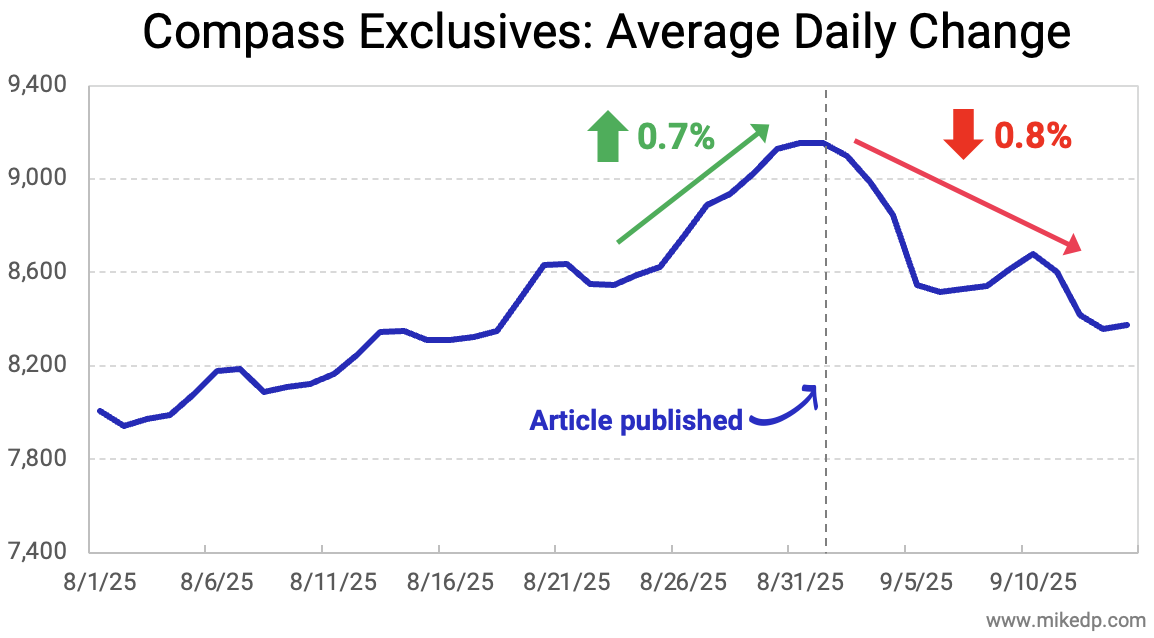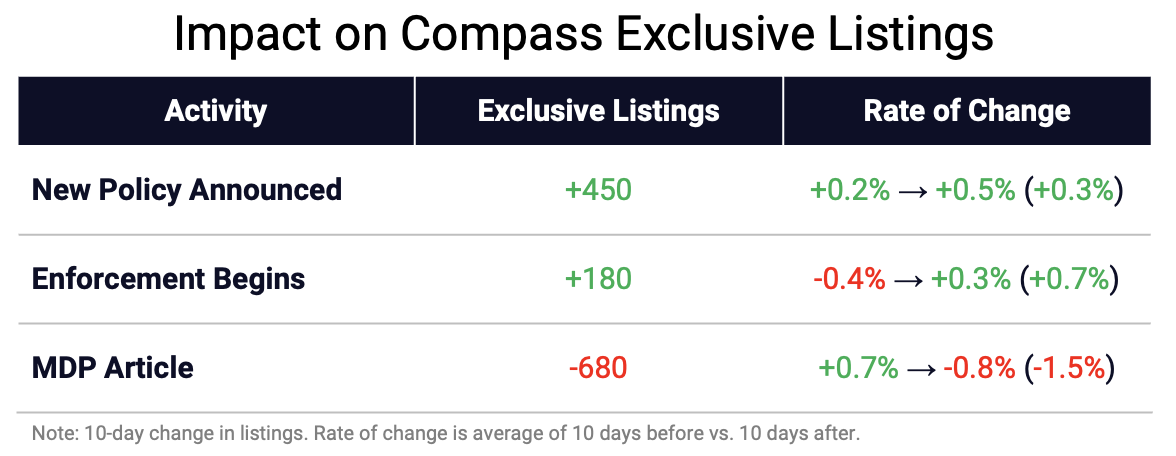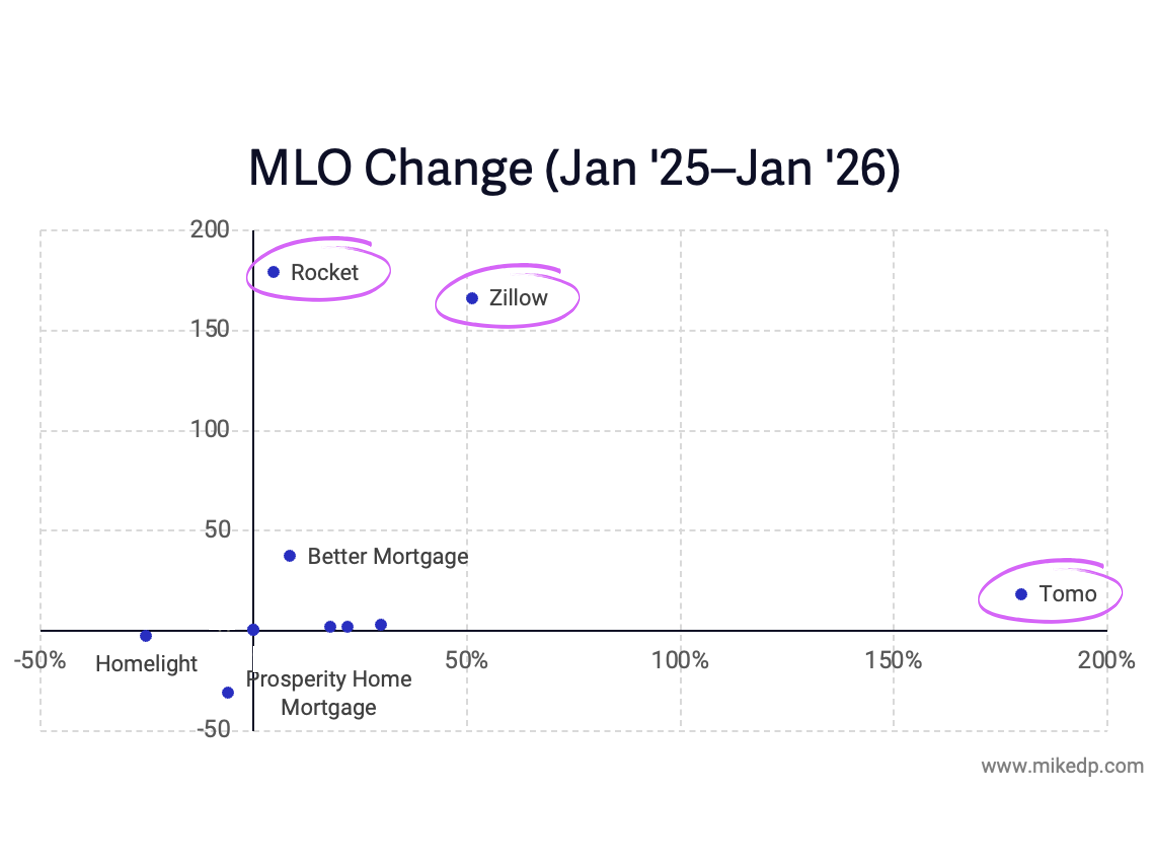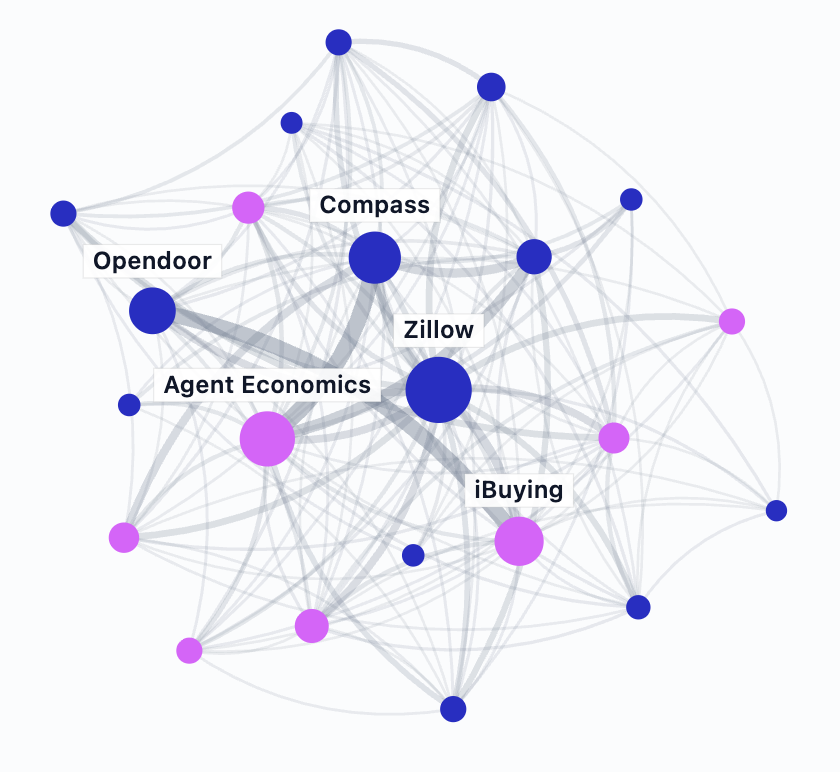Compass’s Exclusive Inventory Finally Drops
/A funny thing happened two weeks ago: after I published an analysis on Compass’s exclusive inventory rising despite Zillow’s efforts to stop it, it suddenly reversed course and started dropping – a lot.
Why it matters: The battle over exclusive inventory isn’t just about lawsuits, corporate posturing, and brute force – it’s also about perception.
And for Compass to prevail in its lawsuit against Zillow, it needs to show harm – and exclusive inventory going up, which my analysis showed, is the opposite of that.
For the ten days before I published my analysis, the number of Compass exclusive listings was rising an average of 0.7 percent per day.
After publishing, that metric rapidly swung to an average drop of 0.8 percent per day – a full 1.5 percent change – the largest observable swing since I began tracking this data in July 2024.
During the same period, the total number of Compass listings continued to increase while private exclusives and coming soon listings dropped.
Meaning exclusive inventory as a percentage of total listings dropped from a high of 26 percent down to 22 percent.
Zillow has been trying to clamp down on the rise of exclusive inventory since it announced its new listing policy in April.
But after enforcement of its new policy began on June 30, the number of Compass exclusive listings, and their rate of change, increased.
In contrast, after I published my analysis the number of exclusive listings dropped by 8 percent and the rate of change significantly swung negative.
Now, humor me for a moment: Zillow is a huge company with massive resources, but it hasn’t been able to materially change the number of Compass’s exclusive listings (assuming that was the goal).
But where Zillow has struggled in the past, data, the principle of transparency, and a 378-word article has had a more meaningful impact.
This analysis is somewhat tongue-in-cheek, but in the battle over exclusive inventory it does highlight the importance of perception.
A collection of very large companies and organizations, from Zillow to NAR, have been trying to control the rise of exclusive inventory with mixed to negligible results.
But what’s occurring suggests that this battle may not be won by trying to change agent behavior at scale or power plays by powerful players.
The bottom line: This may all be just an incredible coincidence, but in the spirit of Occam's razor, the simplest explanation is usually the best.
In my previous article I made mention of “strategic jiu-jitsu,” which feels especially apt today: it is the Japanese art that neutralizes an opponent by using their own energy, force, and momentum against them.
In this case, the perception of the effectiveness of Zillow's listing ban appears to be more important than the reality.

















